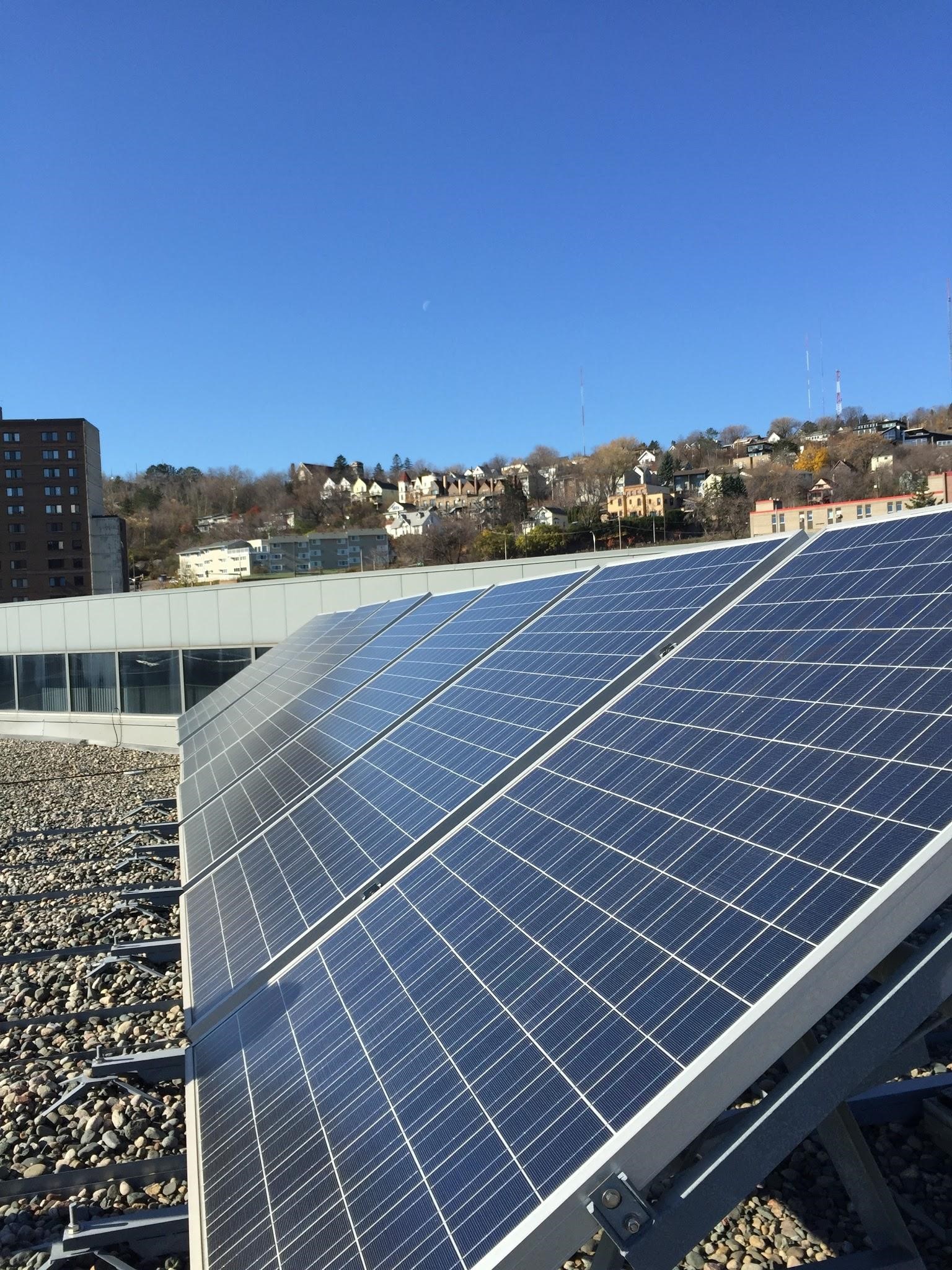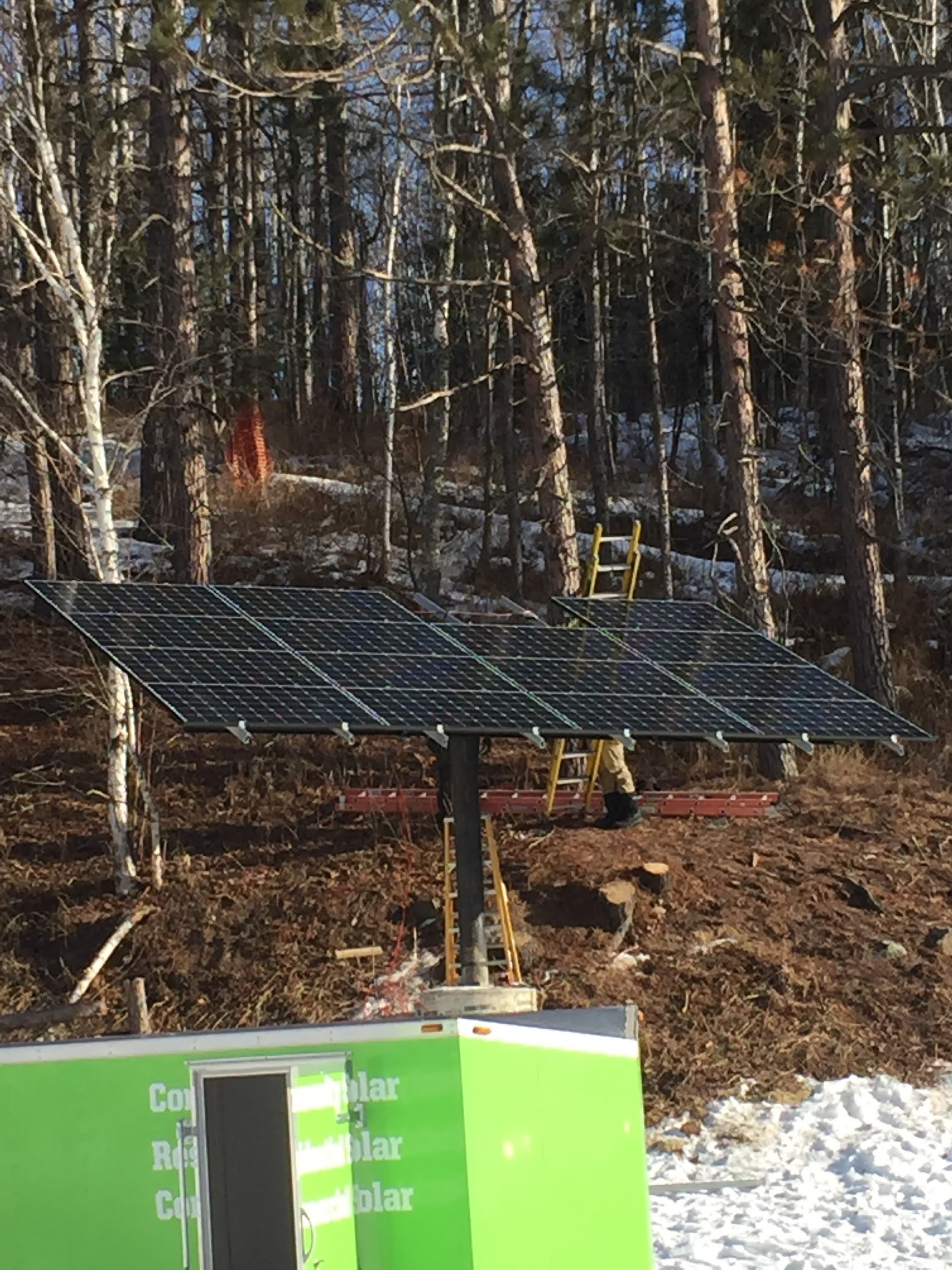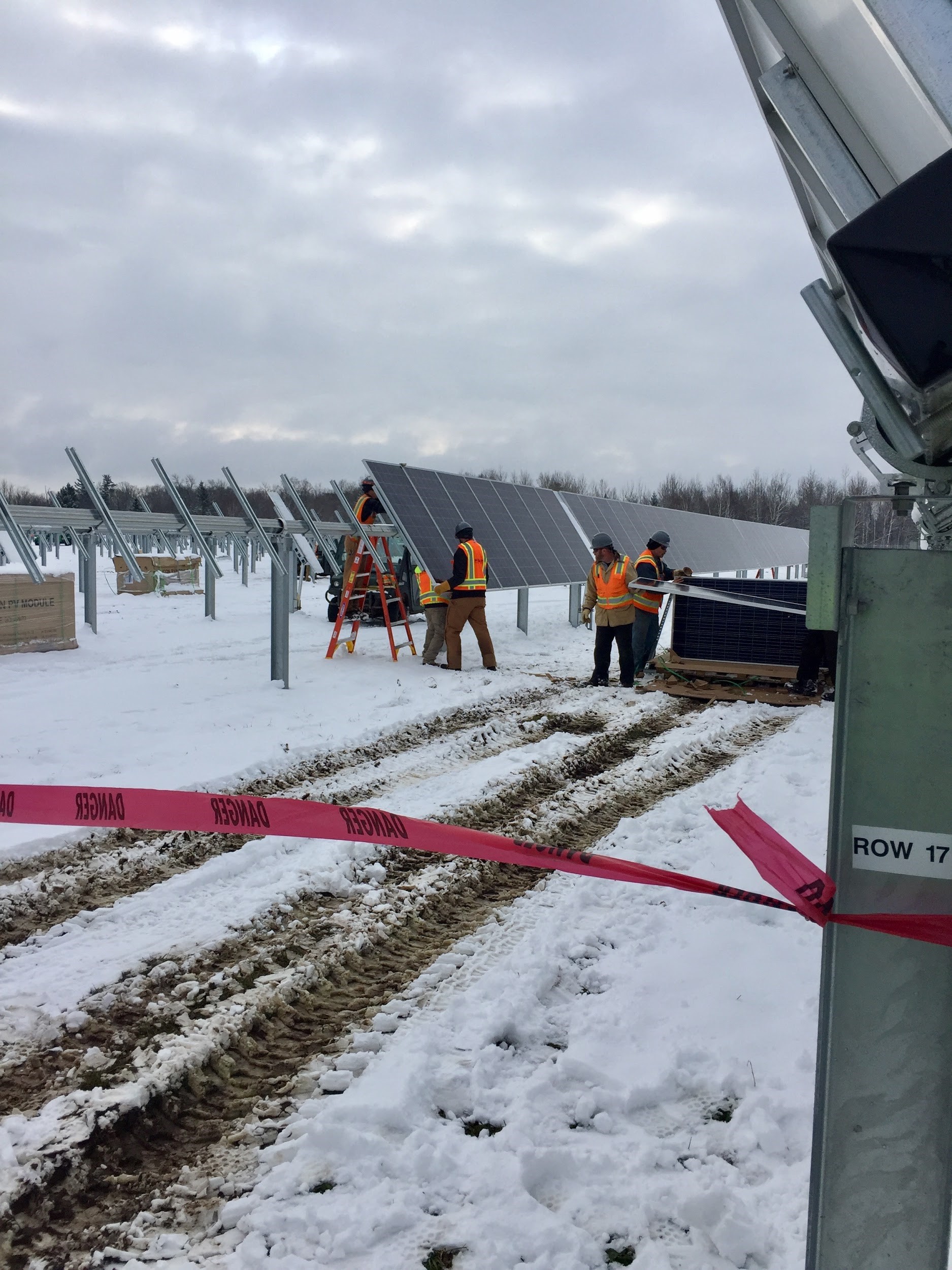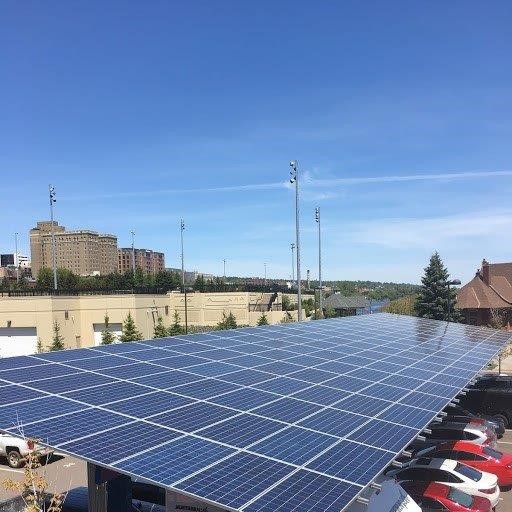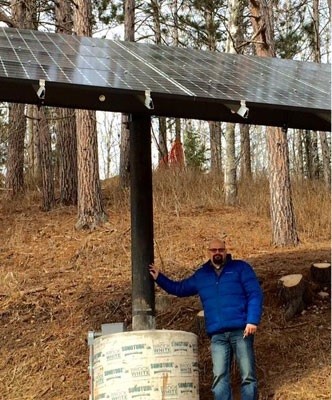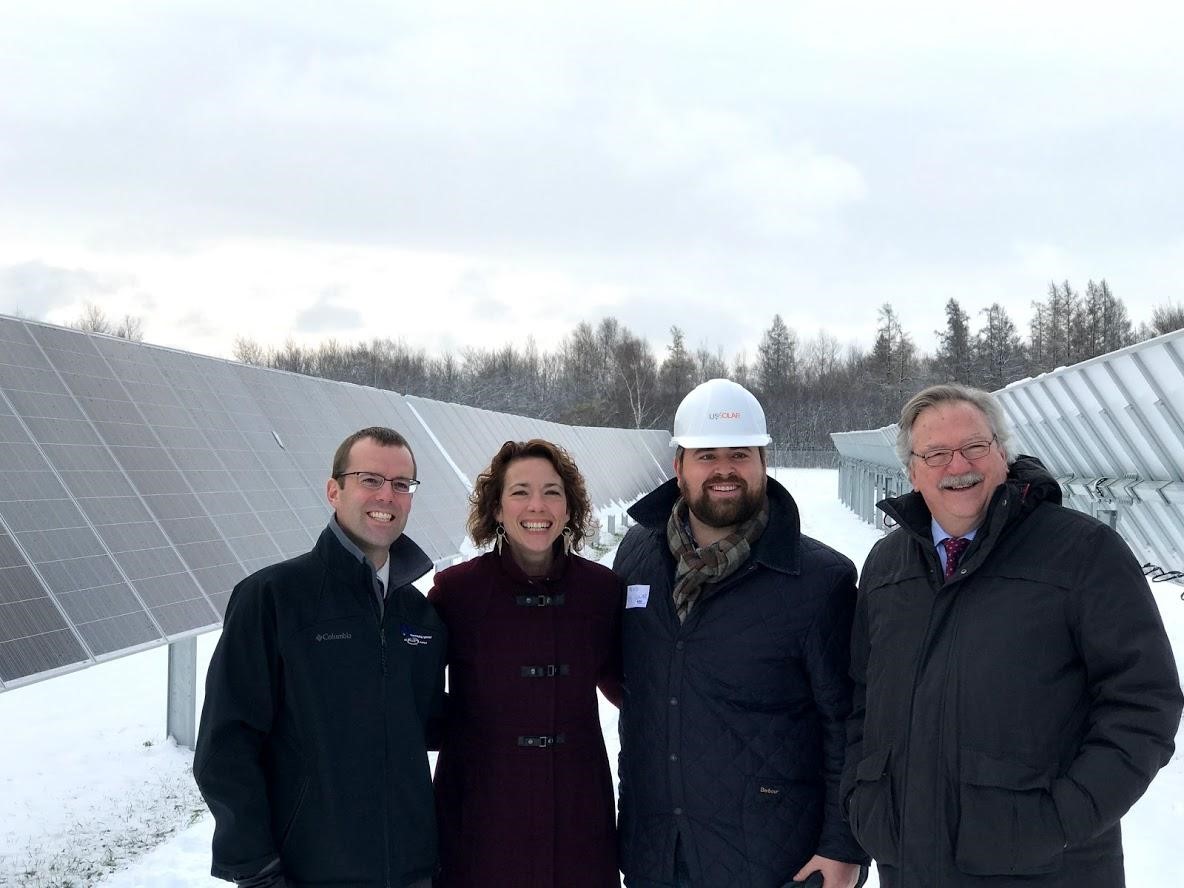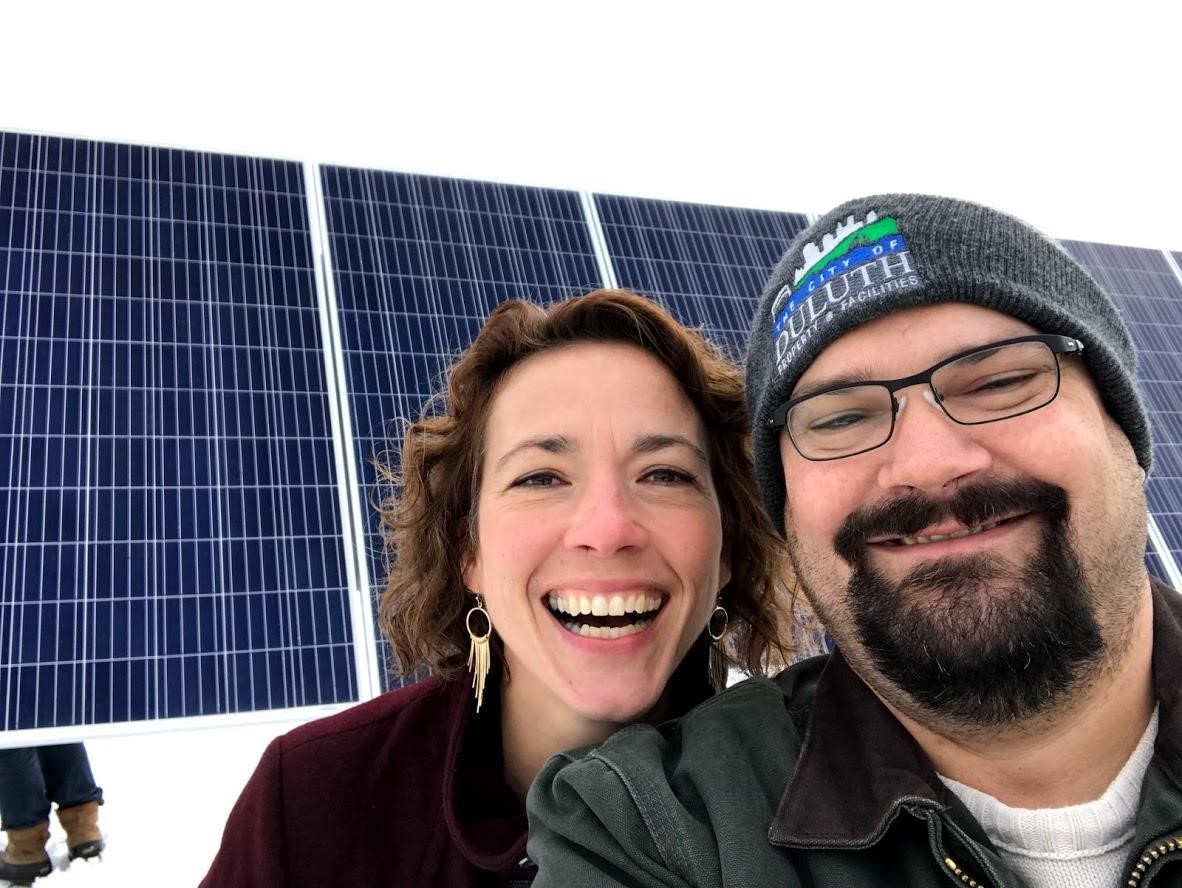Alex Jackson Works to Bring Solar to Duluth
Solar in Duluth is not a new concept. Due to dozens of residential solar projects, multiple large installations on the University of Minnesota Duluth campus, and the city growing their own solar portfolio, Duluth is increasing solar resources at a significant rate. The first City solar installation has been sitting on top of the Duluth Library for approximately 15 years. Even though the installation is small at 2 kWh, the overall amount of energy captured has stayed the same through the years, demonstrating the consistent production of solar power over long periods of time. Since the Library solar installation, city staff have been working hard to create new solar projects with the goals of decreasing energy costs for citizens and increasing independence during periods of high energy rates. One of the staff members leading this progress is Alex Jackson.
Alex Jackson is the Duluth City Energy Coordinator. He works primarily on reducing the city’s energy load and reducing costs for citizens. Alex enjoys that his work involves imagination, problem solving, and engineering, and enjoys finding the best deal for the city and learning about things from an engineering standpoint. He works hard to balance costs and energy independence, building a sustainable future for the city and its citizens. He shared that his biggest goal as the Energy Coordinator is to save money wherever possible, and remove energy costs to save money long-term in City operations. Alex’s other goals include providing park lighting, parking, and other electricity draws through solar power, so the citizens do not have to pay for electricity through tax dollars.
The city currently owns three installations of photovoltaics at the library, Lester Park, and Canal Park. In addition to an investment in a Community Solar Garden Wrenshall, MN. Together, in 2019 alone, the city-owned solar installations have produced $8,750 worth of savings for the city and its citizens. Alex has overseen the installation of all the city solar installations, besides the Library’s solar project, and enjoys seeing the progress that has been made while considering what could still be done. He states that “though the library solar may seem insignificant in the amount produced, it is an important installation because of how long ago it was done, and how it demonstrates the consistent production of solar over long periods of time.” He enjoys having this dependable, small installation as a reminder of how long his work in Duluth can last.
When asked about what the future holds for the expansion of solar installations, Alex noted that nothing is definite. Plans remain uncertain due to the tremendous amount of hard work and communications across city departments that decide the addition of more solar installations, but there are ideas on the horizon. He explained that the biggest consumption of electricity is within the water emissions and control systems in Duluth. Alex has also analyzed outdoor spaces that currently cannot be used for anything except solar arrays. For example, he noted that some city water reservoirs cannot have trees around them or hold large amounts of weight. This would make them a great option for a solar installation due to their light weight and ability to offset high amounts of energy. With the goal of reducing city consumption and costs for citizens, Alex plans on concentrating on the solar installations Duluth already has in place, with the hopes of expanding solar in the future.
Solar projects overview:
Lester Park Solar
The Lester Park solar project is a 5kW system that is used to offset the cost of powering cross-country ski trail lighting. This project produces energy to offset half of the annual lighting load, and the savings have been able to fund further system upgrades at no cost to the city. The Lester Park solar project started in 2015 and was the second city solar installation in Duluth. The city chose this location because of their desire to decrease costs in park and trail lighting, where renewable energy was a viable option.
Canal Park Solar
Our Canal Park solar installation is a solar and car charging system created through a cooperation between the city of Duluth and MN Power. This system provides real time data and removes most of the costs that come with parking lots and car charging stations. The city was able to avoid the installation costs, since MN Power provided the system. The remaining costs come from car charging expenses that are passed down to the end-user. The Canal Park solar installation is a beautiful project that can keep your car cool on hot days while you enjoy walking to the lift bridge, seeing our large lake aquarium, or visiting any of our famous restaurants.
The Canal Park solar project is a 45kW system that produced 83,816 kWH in 2019. This is the equivalent of:
- 13 Passenger vehicles driven for one year
- 7 average homes electricity use for one year
- 130,952 pounds of CO2 equivalents (carbon dioxide in addition to other greenhouse gases that greatly impact our atmosphere) [This slight discrepancy may be due to changing efficiencies through time]
Community Solar Garden
A community solar garden purchase was made by the city of Duluth with Minnesota Power. The goal of a community solar garden is to give citizens the option to participate in solar power without having installations on their own homes or property. Minnesota Power’s first solar garden provides energy from a large 1-Megawatt array in Wrenshall, MN and a 40-kilowatt array in Duluth, on the corner of Rice and Arrowhead.
The city saw an opportunity for a stable investment into solar power for the next 20 years, and at a better rate of return than the federal reserves offers, where money was being kept. By reinvesting this money from reserves into purchasing 40% of the community solar garden output, Duluth ultimately will save over the lifetime agreement. The initial investment will fully pay back in around 8 to 9 years, leaving 11-12 years of savings that are estimated at over 2 million dollars!
